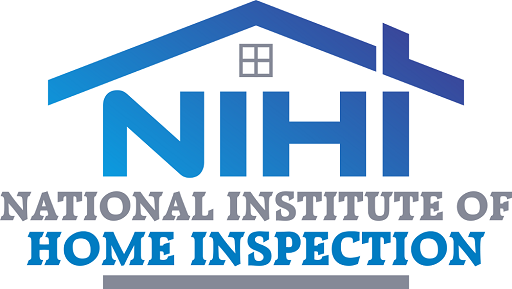NJ 180 Hour Home Inspector Course Description (Live Virtual + Field Training)
This New Jersey–compliant 180-hour home inspector training program combines live virtual classroom instruction with supervised field inspections and report review.
The program is designed for individuals who want structured instruction, accountability, and real inspection experience — not self-paced videos.
Program snapshot:
- 11-week live virtual classroom program
- Monday–Thursday, 6:00–9:30 PM (ET)
- Rolling admissions – new module starts every Monday evening
- Zoom-based live instruction (recordings emailed next day)
- 40 hours supervised field training (6 months to complete)
180-Hour Program Breakdown
The New Jersey 180-hour requirement is fulfilled as follows:
- 140 hours – Live virtual classroom instruction
- 40 hours – Supervised home inspection field training
Both components are required to complete the program.
Live Virtual Classroom Curriculum (11 Weeks)
Live instruction is delivered via Zoom, allowing real-time interaction with instructors. All sessions are recorded and emailed the next day for review or missed classes.
Core Inspection Modules
Interior & Insulation Inspection – NIHI-101
Students learn to inspect and describe interior components and environmental controls, including:
- Thermal insulation effectiveness
- Moisture intrusion and vapor retardants
- Ventilation systems and indoor air quality
- Walls, ceilings, floors, basements
- Interior doors, windows, stairs, railings
- Garages, door operators, cabinets, and countertops
Focus is placed on safety, performance, and moisture-related defect identification.
Roofing Inspection – NIHI-102
This module develops a systematic approach to roof inspections, including:
- Roof covering types and common defects
- Drainage systems (gutters and downspouts)
- Flashings, skylights, chimneys, and penetrations
- Ventilation and system performance
- Safety protocols and code considerations
Students learn both defect recognition and roof system evaluation.
Exterior Inspection – NIHI-103
Covers inspection and reporting of exterior components such as:
- Lot grading and drainage
- Retaining walls and window wells
- Driveways, patios, walkways
- Decks, balconies, porches, railings
- Wall cladding, flashing, trim
- Eaves, soffits, fascia
- Exterior doors and windows
Emphasis is placed on water management and safety risks.
Structural Inspection – NIHI-104
Students learn to evaluate:
- Foundations and footings
- Floor systems
- Wall framing and materials
- Roof and ceiling structures
Training focuses on identifying structural defects, water damage, improper construction, and system interaction.
Heating Inspection – Part 1 (NIHI-105)
Inspection of:
- Gas and oil furnaces
- Hot water boilers
- Equipment condition and materials
- Safety hazards (CO, venting, gas leaks)
- Operational testing and reporting
Heating Inspection – Part 2 (NIHI-106)
Advanced heating systems including:
- Vent systems and flues
- Chimneys and fireplaces
- Wood-burning appliances
- Electric heating systems
Students learn inspection protocols, safety considerations, and defect recognition.
AC & Heat Pump Inspection – NIHI-107
This module covers:
- Refrigeration fundamentals
- Installation types and configurations
- Defect diagnosis and troubleshooting
- Safety and compliance
- Efficiency and environmental considerations
- Documentation and reporting
Plumbing Inspection – NIHI-108
Includes inspection of:
- Water supply and distribution systems
- Fixtures and faucets
- Water heating equipment
- Drain, waste, and vent systems
- Sump pumps, disposals, and related components
Electrical Inspection – NIHI-109
Students are trained to inspect:
- Service drops and grounding systems
- Service panels
- Wiring methods
- Devices and fixtures
- Common electrical defects and safety hazards
Effective Communication – NIHI-110
Focuses on:
- Verbal communication with clients
- Clear written inspection reporting
- Client education
- Ethical and legal responsibilities
- Professionalism and customer service
Report Writing & Business Development – NIHI-111
Students learn:
- Clear narrative report writing
- Standards of practice
- Risk management through reporting
- Business development fundamentals
- Professional protocols
Supervised Field Training (40 Hours)
The field training program fulfills the 40-hour supervised inspection requirement for New Jersey licensure.
- Students accompany a licensed NJ Home Inspector
- Inspections are performed on real residential properties
- Field training inspections are scheduled through an online scheduler
- Students have up to 6 months to complete field hours
Report Writing & Feedback After Every Inspection
After every field inspection, students must:
- Write a full inspection report
- Submit the report for instructor review
- Receive written feedback and corrections
This feedback loop ensures students improve inspection accuracy, reporting clarity, and professional communication before licensing.
(This is one of your strongest differentiators — and it now finally shows.)
Who This Program Is For
This program is best suited for individuals who:
- Want live instruction, not self-paced videos
- Can attend evening classes consistently
- Expect detailed feedback on inspections and reports
- Are pursuing licensure and professional practice
It is not ideal for those seeking shortcuts or minimal involvement.
Frequently Asked Questions
Can I start the program any Monday?
Yes. Rolling admissions allow students to begin with a new learning module every Monday evening, subject to availability.
What if I miss a live class?
All Zoom classes are recorded and emailed the next day for review or home study.
Is this program self-paced?
No. This is a structured, live-instruction program with required attendance and deadlines.
How long do I have to complete the field training?
Students are given up to 6 months to complete the 40 hours of supervised field inspections.
Do you review my inspection reports?
Yes. A written inspection report is required after every field inspection and is reviewed with feedback.
Does completing the course guarantee licensure?
No. Licensing, insurance, and business setup are separate steps that are clearly explained during training.
